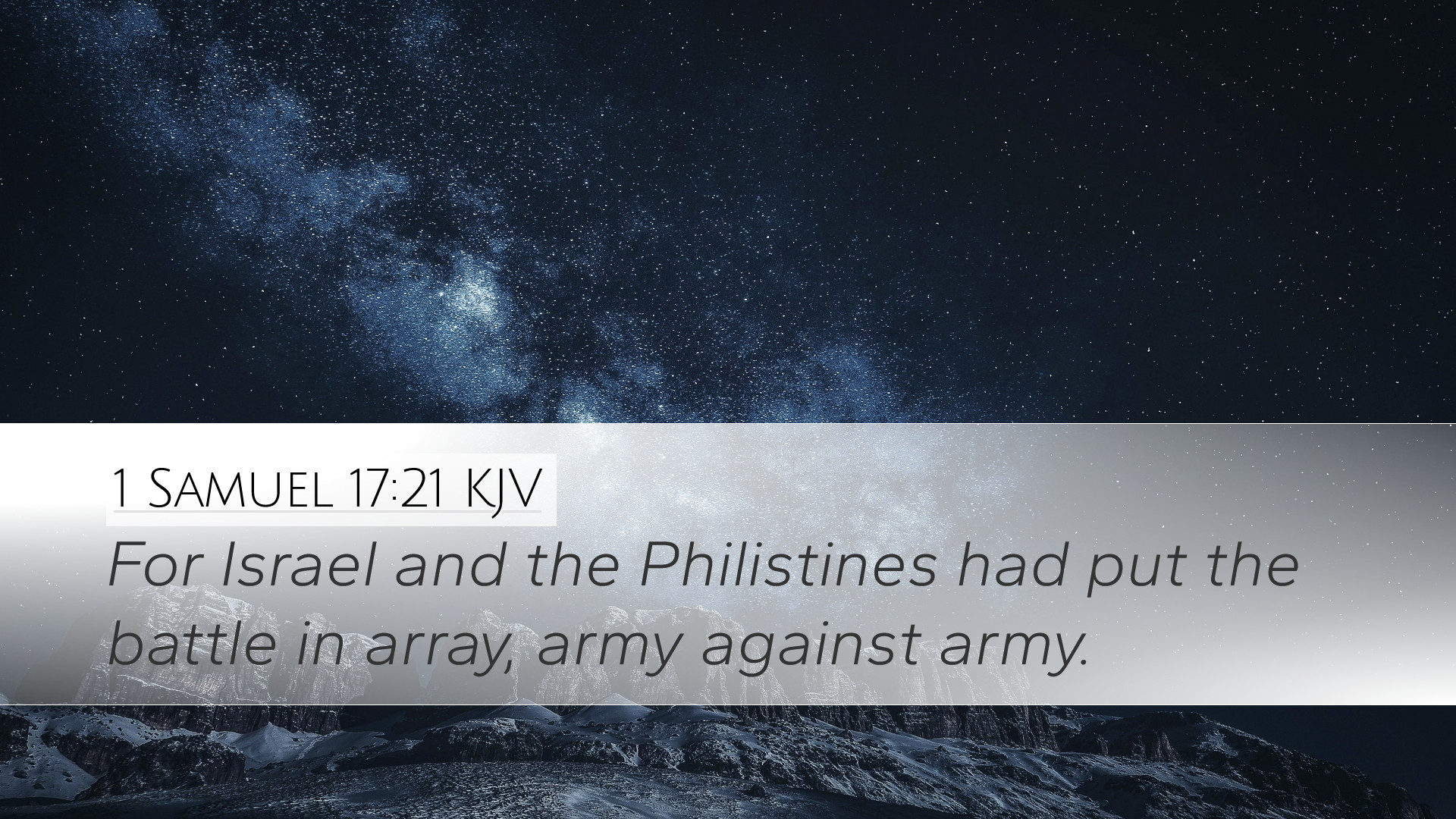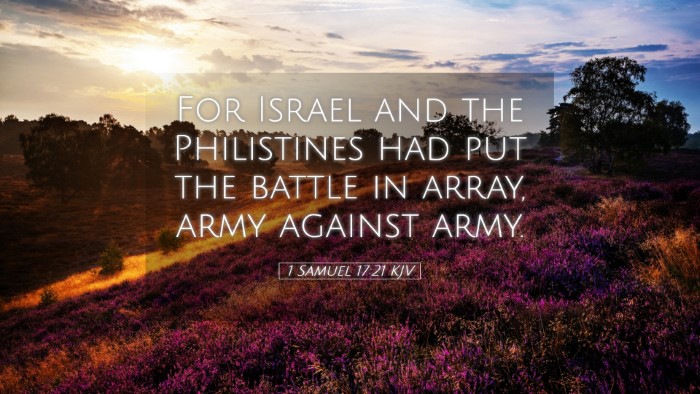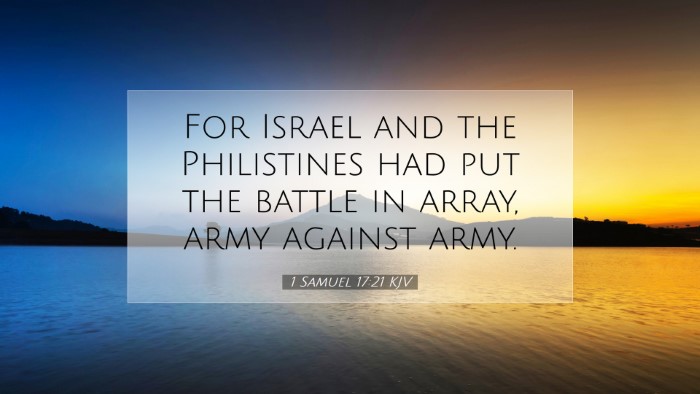Commentary on 1 Samuel 17:21
Verse: 1 Samuel 17:21 - "For Israel and the Philistines had drawn up in battle array, army against army."
Context and Background
The confrontation between Israel and the Philistines in 1 Samuel 17 is set in the
Valley of Elah. This passage vividly illustrates the tension that had escalated to
a climactic confrontation. The two armies were poised for battle, which not only
highlights their enmity but also the larger spiritual battle that Israel faced at the
time. The context of this scripture is essential, as it introduces the famous story
of David and Goliath, marking a turning point in Israel's history.
Historical Significance
The Philistines were one of the primary adversaries of ancient Israel. Known as a
fierce and technologically advanced people, they posed a significant threat. In this
scene, we find Israel in a precarious position, besieged not just by the enemy but
also by fear and despair. The mention of “army against army” emphasizes the
seriousness of the conflict and the gravity of what was at stake for both sides.
Insights from Matthew Henry
Matthew Henry reflects on this moment as a spectrum of moral and spiritual lessons.
He emphasizes the readiness of the armies—each side prepared for combat but lacking
true divine guidance. Henry notes that Israel's readiness was one marked by fear,
unlike their Philistine foes, who were confident yet misguided. The preparations on
both sides symbolize the human tendency to rely on physical strength rather than
seeking God’s favor.
Insights from Albert Barnes
Albert Barnes, in his exposition, delves into the implications of the drawn-up armies.
He teaches that the readiness for battle serves as a metaphor for spiritual warfare.
Barnes emphasizes that true strength comes not from numbers or weapons but from
reliance on God. This battle exemplifies the spiritual struggles that believers must
endure, drawing attention to the necessity of faith and the importance of spiritual
vigilance.
Insights from Adam Clarke
Adam Clarke expounds upon the significance of the phrase “battle array.” According
to Clarke, the careful organization of armies reflects the strategic nature of warfare
and the inherited traditions of engaging in battle. He points out that even amidst
physical preparation, there is often a lack of spiritual readiness, which leads to
defeat. Clarke calls believers to introspection about their own readiness for the
challenges of life, urging reliance on divine guidance over mere human effort.
Thematic Reflections
- The Preparatory Phase: The significance of being prepared—both
physically and spiritually. The need for divine help in confrontations.
- Faith Over Fear: This moment symbolizes a critical juncture where
Israel's location is marked by fear rather than faith, setting the stage for David’s
entry into the narrative.
- Symbolism of Armies: The warfare dynamics illustrate the larger
battle between good and evil, highlighting the roles individuals play as part of
greater conflict.
- Human vs. Divine Strength: A focus on the limitations of human
strength and the dire need to depend on God’s power for victory in challenges.
Practical Applications
This verse serves as a reminder for pastors, students, and scholars to evaluate their
own preparations—spiritually and practically—for the battles they face in life and
ministry. In an era where believers can feel outnumbered and overwhelmed by
challenges, it is crucial to remember that God’s presence can tilt the scales, just as
it did with David. The lessons from this account encourage us to be both proactive
in our strategies and reliant on God’s wisdom.
Conclusion
1 Samuel 17:21 encapsulates a moment of anticipation and fear that resonates with
the life of every believer. The verse invites reflection on readiness and reliance,
urging those in spiritual leadership to cultivate faith over fear in times of conflict.
The insights drawn from respected commentaries serve to deepen our understanding of
both the historical context and the enduring spiritual truths that emerge from this
passage.


